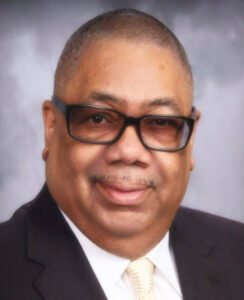
By Rev. Donald L. Perryman, Ph.D.
The Truth Contributor
[Funders] must recognize that a strong, localized, Black-led nonprofit sector is essential to thriving Black communities. – Ebonie Johnson Cooper
Black-led and Black-benefiting nonprofits such as Pathway, Inc. are the backbone of communities, deeply connected to the people they serve.
Established in 1965 under its former name, the Equal Opportunity Planning Association (EOPA), Pathway, Inc. is dedicated to addressing poverty and providing vital resources, services, and advocacy to empower individuals and families in the community.
Despite their resilience and other strengths community nonprofits bring to their vital role in addressing systemic inequities and fostering empowerment, these organizations face persistent challenges, including “limited access to diverse funding sources and disproportionate reliance on a small number of funders.”
According to the report Grassroots, Black & Giving: How Philanthropy Can Better Support Black-led and Black-Benefiting Nonprofits, 86.5 percent of Black-led nonprofits frequently struggle to secure funding, and over half risk closure if key funders withdraw. This precarious reality underscores the importance of intentional leadership and innovative strategies to sustain their impact.
I caught up with Cynthia Savage, the newly appointed CEO of Pathway, Inc.
In this week’s Truth, Savage reflects on the role of her Black-led organization, the challenges it faces, and how Pathway will continue empowering families and individuals while maintaining its legacy of service.
 Perryman: Let’s talk about your journey, how did it start?
Perryman: Let’s talk about your journey, how did it start?
Savage: I am a native of Toledo, and I’m a product of Toledo Public Schools from McTigue Junior High through Rogers High School. I am also a University of Toledo and Bowling Green graduate, so northwest Ohio has been where I’ve made my roots and stayed.
Perryman: Can you share highlights from your work history and experience?
Savage: My first job was as youth director for Central City Ministries, where I created programs and opportunities for students in central-city schools and parishes. From there, I transitioned into marketing and communications at Mercy, where I developed my skills in public speaking, press releases, and community health outreach.
Later, I worked in higher education and volunteered for Jack Ford’s mayoral office, then remained as his assistant, handling contracts, legislation and constituent services. That role taught me how to listen, meet people where they are and serve them effectively.
Afterward, I joined the Lucas County Auditor’s Office under Anita Lopez, leading the special assessments team. I learned to navigate government bureaucracy while breaking down barriers to help constituents access critical services.
Then, I worked with Center of Hope’s food distribution program during COVID-19. Ensuring families had basic necessities during such a difficult time was exhausting and deeply rewarding. Most of all, it was a reminder of the impact of serving others in their time of need.
Perryman: And then joining Pathway, Inc.?
Savage: I served the past three years as Director of Community Resources at Pathway; having the opportunity to come in and disperse what was initially roughly $20 million in rent and utility and mortgage assistance is where I started.
Perryman: How familiar are you with the Pathway’s resilient history, including its time as EOPA?
Savage: Growing up in this community and active in my church, I was familiar with key figures like Pete Culp and Weldon Douthitt. I often saw them offering help wherever they were. People would approach them with a need and they’d immediately respond—whether by making a call or taking down information to follow up.
I didn’t fully grasp what was happening as a child but I observed their leadership and dedication to helping others. Now, as an employee and leader, I’ve gained a deeper understanding of the operations of Community Action Agencies and their importance.
Perryman: As a Black-led organization, EOPA was a source of pride for the African American community in Toledo, Ohio. The loss of the Head Start grant has certainly impacted the agency. Please talk about the impact and consequences of losing the Head Start funding on the organization and the community.
Savage: We’re grateful that Head Start still exists; it is now run by Toledo Public Schools (TPS). We are grateful that it is still a part of our community. While it was a major part of EOPA, the history still lingers within our organization. There are still individuals who carry that history and share it as often as they can of the times when that organization or program was a part of the agency. The agency has since rebranded and is now Pathway, Inc., which meant that we were moving forward and have been continuously doing so since that program left.
Perryman: Does it matter that Head Start and the education of our children at one time was the Black community’s responsibility and a pillar of the organization? How have you been able to pivot and still remain responsive to the community?
Savage: If you want to talk specifically about education, we host a GED program that meets weekly at our agency through our partnership with Owens Community College. So, the educational component combined with certifications and training for individuals will remain part of who we are and what we offer. I think we’re just educating in a different way. Our focus is on strengthening families so they can create the solid foundations for their children to thrive.
Perryman: Can you describe the core programs and initiatives Pathway currently operates?
Savage: We have several key programs focused on meeting the needs of our community. The Department of Community Resources offers comprehensive case management to seniors and permanently disabled clients, addressing their specific needs.
Our Employment and Career Services include a GED program in partnership with Owens Community College, as well as financial literacy and training initiatives supported by LISC, which recently recognized Pathway for its impactful work. This department also runs the Summer Youth Employment Program, helping youth ages 14-18 gain work experience through coaching on topics like paycheck management, etiquette, and professional interaction.
The Senior Emergency Home Repair Program, originally led by Weldon Douthitt, provides critical repairs for seniors aged 60 and older and those who are permanently disabled, with funding from the City of Toledo.
Lastly, we operate the Home Energy Assistance Program (HEAP), which provides emergency energy support. HEAP is a staple service for many, and during our winter crisis program, we see hundreds of individuals seeking assistance, including at events like our recent Super Tuesday Program. These programs reflect our longstanding commitment to serving and empowering the community.
Perryman: Pathway has recently experienced significant layoffs. What are the challenges moving forward, and how are you addressing them?
Savage: Well, it’s not easy. During my time leading the Department of Community Resources, I established a peer network to ensure team members could lean on one another for support – whether to navigate work-related issues or simply to say, “Hey, today’s a heavy day for me, and I’m not okay. Can we talk?” Those relationships were established intentionally to build trust and provide the opportunity to learn from one another.
The layoffs you mentioned were tied to statewide cuts in HEAP dollars, with the explanation that they were rolled back to pre-COVID levels. That led to the loss of 10 individuals plus three unfilled vacancies. Since then, we’ve repurposed staff from other departments, like our CSBG team, with prior knowledge of HEAP to help manage the workload. My approach is to ensure no one feels overwhelmed or unsupported – we’re strongest when we step up together to address challenges.
Perryman: With leadership changes at the federal and state levels, the reliance on government funds presents nonprofits with an uncertain future. How do you lead during such times of crisis and challenge?
Savage: My faith keeps me grounded; I know that He will not lead me where He will not guide me. I am also very proactive, so I have established relationships with private foundations and explored partnerships with other organizations to diversify our funding sources.
While we are deeply grateful for government funding at all levels, we’re actively pursuing new avenues to sustain our services and keep the momentum going. My goal is to reassure staff and the community that we are committed to keeping our doors open and continuing to serve, no matter the challenges. We’ve also developed an extensive outreach program so that we’re not relying on individuals to just come through our doors but going out into the community to tell them who we are and what we offer.
Perryman: You follow revered and esteemed leaders like Oscar Griffith, Jim Powell and Mary Hodge, as well as strong board chairs like Jim Caldwell and Bishop Robert Culp. What legacy would you like to leave in this role?
Savage: Oscar Griffith’s legacy is still so heavily embedded in our organization in terms of the memories that individuals have for the work that has been done in that space. I don’t take it lightly. Let me say this: when I walk through that door every day, I know what I’m facing, I know what my assignment is, and I know what has been done leading into this role.
My legacy is that when people walk away from Pathway, they know that they have been impacted in a positive way; that we can make a difference and turn the page for families; that they can see a better day, and that we treat them with respect and dignity.
Contact Rev. Donald Perryman, PhD, at drdlperryman@enterofhopebaptist.org

